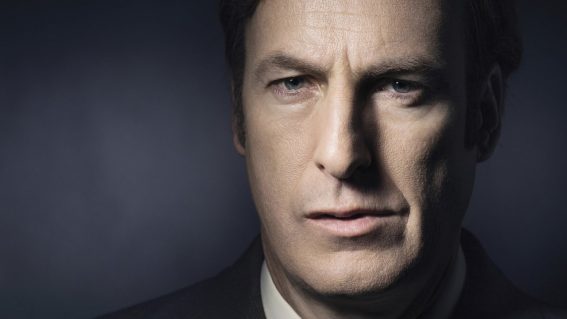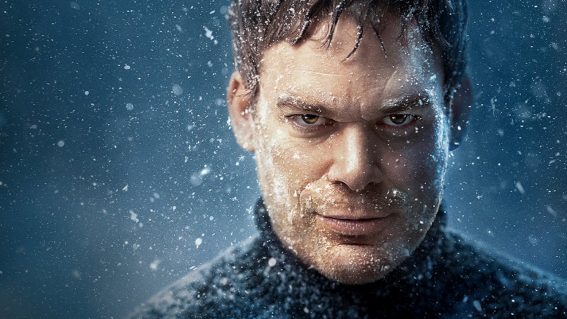A hugely expansive world begins to reveal itself in His Dark Materials
Dominic Corry evaluates the first episode of NEON’s new series, streaming now.
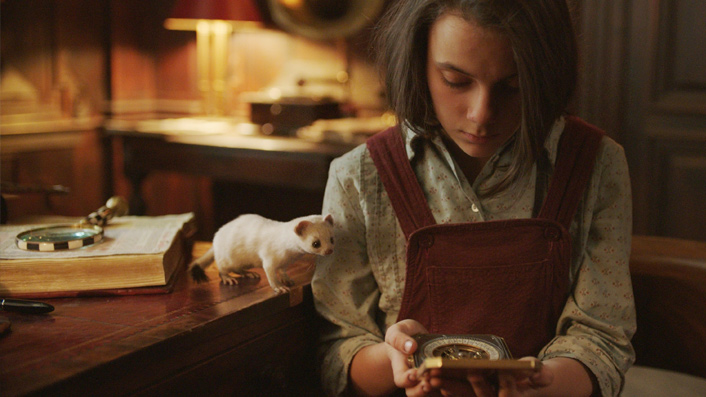
NEON’s new fantasy show His Dark Materials has just kicked off, with the first episode streaming now (and new episodes arriving each week).
Starring the likes of James McAvoy (Split), Ruth Wilson (TV’s The Affair), Lin-Manuel Miranda (Mary Poppins Returns), and Logan‘s breakout star Dafne Keen, HBO’s adaptation of the renowned fantasy novels follows a parallel world where science, theology and magic are entwined.
Dominic Corry takes a look at the show’s background, and outlines what the first episode suggests about the rest of the series to come (yes, some spoilers for episode one follow).
As the Golden Age of Television gave way to the Peak TV era throughout the 2010s, the shows considered to be the amongst the best on television began to embrace a more ambitious kind of storytelling.
The culture-dominating success of Game of Thrones, unquestionably the biggest TV show of the last ten years, (despite what the current backlash might have you believe) has given rise to what you might call The New Density.
This refers to shows that embrace a complexity of storytelling that goes so far beyond what multiple generations of television taught us to expect from the medium that it can sometimes be bewildering. More than a few of us needed to regularly consult Wikipedia while watching Game of Thrones, and the same could be said of other modern prestige TV shows such as Westworld and Watchmen.
That is not to say that these are shows that require homework to understand, but rather to acknowledge that they exist in such a state of narrative expansiveness that the option to bone up on supplementary or source material is an added bonus. And enriches the experience.
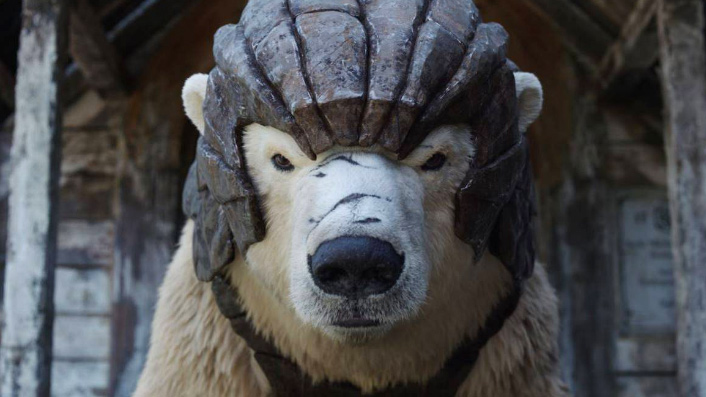
The latest example of The New Density is the new NEON drama His Dark Materials, which premiered this week.
Just like Watchmen, which is casually pushing the boundaries of The New Density, His Dark Materials is based on a challenging intellectual property previously adapted into a 2000s movie that was met with a mixed reception.
In this case, the intellectual property is Philip Pullman’s trilogy of novels published between 1995 and 2000. The first entry, Northern Lights, was adapted into a 2007 film released under the title the book took in the United States: The Golden Compass. Positioned as New Line Cinema’s big fantasy adaptation follow-up to the Lord of the Rings trilogy, The Golden Compass failed to click with audiences on the level intended, and planned sequels were abandoned.
It speaks to the bounty of the Peak TV era that HBO and BBC, who co-produced the new His Dark Materials, were willing to revisit the books so soon after a perceived failure.
Many of us used to fantasise about the idea of an HBO Watchmen mini-series, but it never seemed like something that could actually happen. Although the new show isn’t exactly that, it’s more than fans of the original comic book ever thought they’d get. Similarly, the rabid and wide fanbase that Pullman’s books enjoy probably never thought they’d see such a lush and respectful adaptation of their beloved books.
Speaking as someone with only a faint memory of the 2007 movie, and no familiarity with the book, I was intrigued to see how the first episode would play out and explain the world of His Dark Materials to me.
The show opens with a few explanatory lines onscreen, a somewhat expected feature of The New Density that speaks to the high concept nature of Pullman’s books. “This story starts in another world, one that is both like, and unlike, your own”. It goes on to explain how everyone in this world has a daemon, which is an animal companion that represents the physical embodiment of their soul. It does not explain whether or not these daemons eat or go to the toilet or sniff each other’s bottoms, but I’m confident the series will eventually address these matters.
The onscreen titles also outline the nature of the ruling authority in the vaguely Edwardian-with-helicopters setting: The Magisterium, which the first episode makes clear is an analogy for the Catholic Church. We are then thrust into a prologue taking place in the Arctic North and featuring Lord Asriel (James McAvoy), a dashing explorer type who has discovered something drastic while photographing the aurora borealis.
Following the opening credits, we adopt a perspective we will rarely veer away from for the rest of the episode: that of Lyra Bellacqua (Logan‘s Dafne Keen), Asriel’s young niece who was orphaned as a baby and then raised at Jordan College in Oxford, with the school’s Master (The Wire‘s Clarke Peters) her guardian.
Lyra witnesses an attempt on Asriel’s life that is connected to his discovery in the North, a discovery we learn challenges the Magisterium’s prescribed dogma, which they are desperate to maintain. He heads off in an airship (there’s quite of few of those) to investigate further, while Lyra connects with the mysteriously-intentioned Miss Coulter (The Affair‘s Ruth Wilson), who promises to take her north to join her uncle. Then there’s the case of Lyra’s friend Roger (Lewin Lloyd), one of several children who have recently been kidnapped.
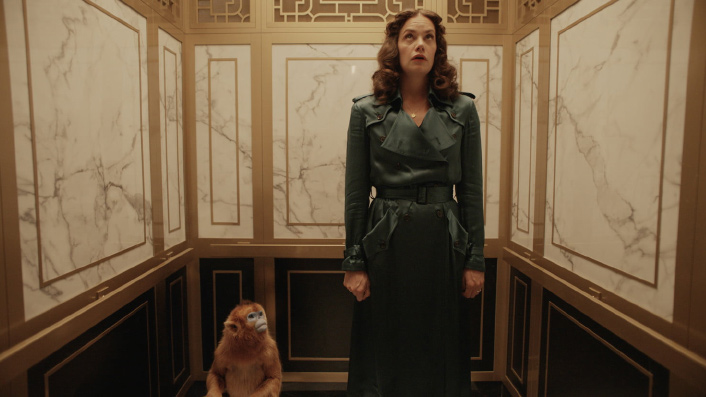
A few leaps of faith are required to settle into the odder aspects of His Dark Materials (animal souls? no social services?), but the overall impression from the first episode is of a hugely expansive world just beginning to reveal itself. Some of the ideas on screen seem like metaphors made physical, and more time spent with them should render them less intimidating.
After the initial intertitle exposition dump, the episode does an admirable job of dishing out crucial world-building details through organic storytelling methods. I furrowed my brow a bit here and there, but I was never completely lost. There’s a raft of aesthetic influences on display, from Harry Potter to Dune to Chitty Chitty Bang Bang, which assists in the grounding of the unfamiliar.
That said, it’s not quite clear what a lot of it means and what the actual stakes are, and we haven’t even seen Lin-Manuel Miranda yet (he’ll show up soon as an airship pilot). But there’s no doubting the promise and ambition of this series, and its willingness to address aspects of society that most genre stories leave completely alone. I’m looking forward to following it wherever it may lead. Embrace The New Density.








